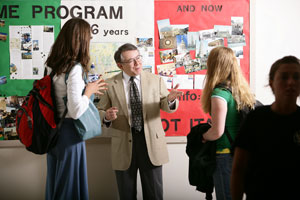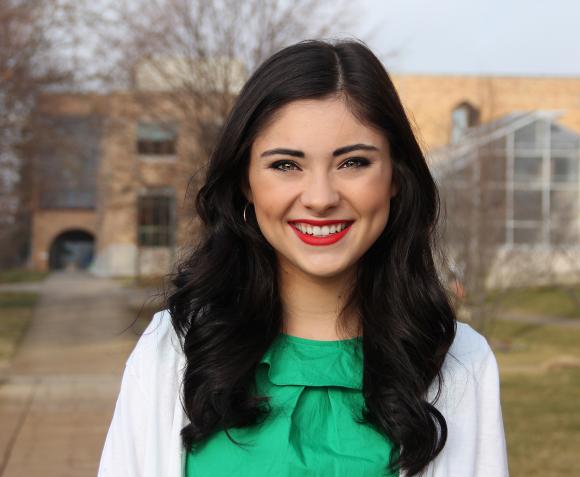Many Ways of Living
 There are many ways of living. Italian professor Peter Checca, who has taught at Saint Mary’s for 34 years now, learned that life lesson at an early age.
There are many ways of living. Italian professor Peter Checca, who has taught at Saint Mary’s for 34 years now, learned that life lesson at an early age.
Checca’s family emigrated from their hometown of Sulmona, Italy, when Checca was just eleven-years-old. One of his first memories is of taking the train from New York City to Boston and being unable to read the English-language menu in the dining car. Checca finally just pointed out a selection to the waiter, who delivered Checca’s afternoon oatmeal with a bemused smile on his face.
Growing up in Boston, Checca faced the blatant prejudice of Americans who resented immigrants’ presence in the country. “I used to get beat up on the way to school,” he recalls. But Checca says he would experience his childhood all over again if he could because the obstacles he faced taught him to be strong.
Ever resilient, Checca considered any expression of intolerance a challenge to be overcome. Supported by his family, he developed confidence in himself and his abilities. After high school, Checca went on to receive his degree in Spanish—“with Italian always in the background,” he says—from Boston State College and earned his PhD from Penn State University.
Checca came to Saint Mary’s in 1976 to teach Spanish and eventually Italian, which he helped students, his colleagues in Italian, and administrators expand from three courses, to a College minor, to a major in 2006. He has been the advisor for Saint Mary’s Rome Program for 26 years and speaks with passion about the program and the things his students learn in their studies abroad.
“I’m always amazed at how quickly students adjust to Rome and how quickly it becomes their second home,” says Checca, who visits the program every two years.
Checca’s dedication to his students is evident in his teaching style, of which conversation is the primary component. He goes into each class ready to have fun and work hard, and so do his students. “We’re very active in my classroom. Always talking. If you get students involved, get them to share your passion, they’re going to be successful, and they are going to discover something new,” says Checca.
He is adamant that experienced professors should be involved in teaching introductory language classes because they will know how to make students’ foray into that language a positive experience. “That first encounter is essential,” he says.
It is also important that his students master the basics, especially before going to Rome. “When they meet a stranger on the train, they’re not going to discuss philosophy in Dante, they’re going to talk about where they’re from, their family, their likes and dislikes,” he says.
Checca encourages all of his students to travel abroad and not necessarily in Italy. He feels it is important for them to learn how to operate outside of their comfort zones. And he is always proud of them for acquiring the independence and confidence to navigate living overseas on their own.
Upon their return, Checca is delighted to nurture the students'' newfound passion for Italian language and culture. “There are many ways of living,” smiles Checca. “There are many ways of even making coffee.”

